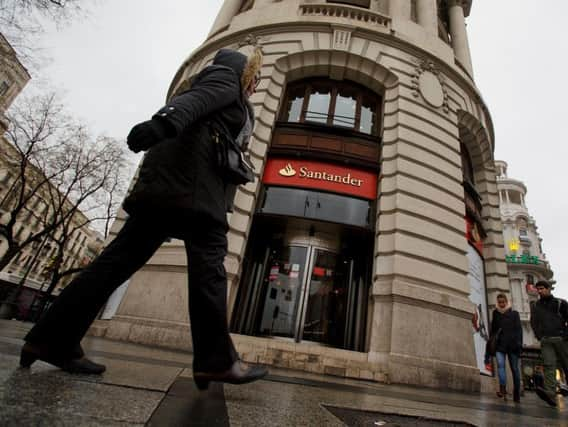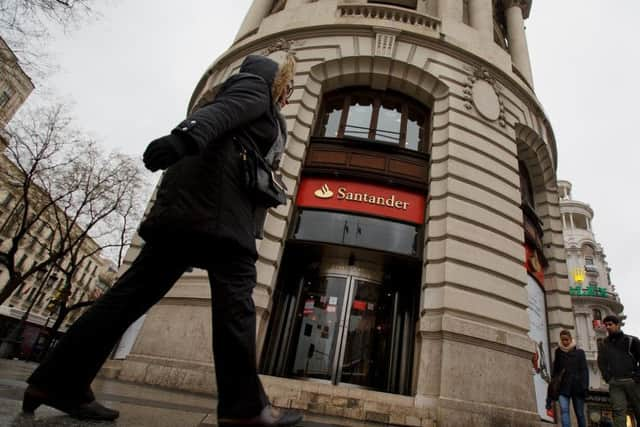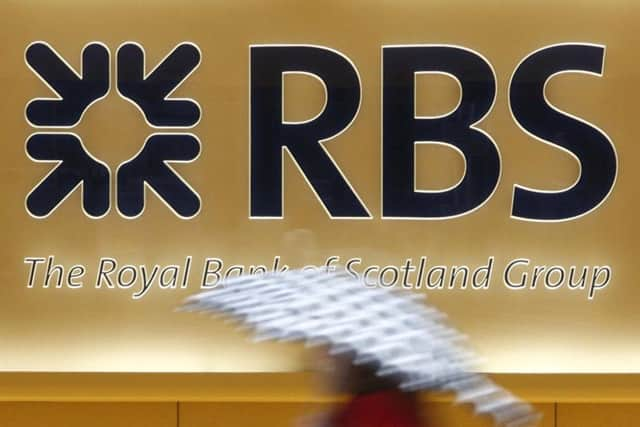The banks we have lost from our high streets in Preston, South Ribble and Chorley are adding to the high street demise


Just this week, Santander announced yet another swathe of closures, affecting Clitheroe, Fleetwood and Burnley, adding to the hundreds of bank workers who have already been put out of work, and leaving more residents and businesses isolated from their nearest branch.
“In Ashton, we don’t have a bank any longer, the only place people can easily access is the Post Office at Lane Ends.


Advertisement
Hide AdAdvertisement
Hide Ad“Banks are a community hub, they draw people in. Our high streets are suffering, and we can’t afford to lose any more banks.”
Chorley Councillor Kim Snape agreed. She said: “The loss of the NatWest Bank in Eccleston, and now the recent closure of the RBS bank in Croston creates difficulty for those unable to bank online.
“The removal of the ATM from the RBS building virtually as soon as the bank closed recently means that there is now only one ATM to serve the whole of Croston. If this machine is out of order or is lost in its turn, life will become more difficult for residents of Croston. There are similar problems in Eccleston with the loss of an ATM due to the closure of the One Stop shop.
Mel Close, chief executive of Preston-based Disability Equality North West, said local branches closing was “yet another example of the gradual erosion of communities and their assets”.


Advertisement
Hide AdAdvertisement
Hide AdShe said: “People tend to forget that a bank, cafe, post office, library etc is more than a service provider, it’s a place of safety and security for many disabled people, a service with a ‘human face’ which is particularly important for people with communication difficulties, people with autism, learning difficulties or older deaf people.
“They’re very often the hub of a community too, where people bump into neighbours and staff, who may ask if they’re well or if they need anything, and how they find out about local events.”
Since 2013, Preston, South Ribble and Chorley areas have lost 23 banks, with another, the Natwest in Bamber Bridge, set to close on January 29.
The highest proportion - 16 of the branches - have closed since 2017.
Advertisement
Hide AdAdvertisement
Hide AdIn Penwortham, which has lost a Natwest, RBS and Barclay’s, Councillor David Howarth was more sympathetic towards the banks.
He said: “In fairness, I don’t think these closures have been driven by the banks, but by their customers.
“I use online banking, like most people do, and everything is contactless these days. Even the major concern about small businesses needing to bank cash is rescinding.
“The Post Office is now offering banking services, which are available to people affected by bank closures.
Advertisement
Hide AdAdvertisement
Hide Ad“I have seen a lot of older people in the Post Office using that service, but it’s a bit of an insult to older people to say they don’t want or can’t use online banking.”
A recent survey by consumer watchdog Which? said that while Post Offices and mobile banking trucks were often suggested as alternatives to traditional banking, they did not offer the same range of services or convenience as branches.
Meanwhile, it said many people do not want to use online services.
Despite this, a spokesman for Cottam Post Office spoke of the Post Offices banking services as being well-received and increasingly popular.
Advertisement
Hide AdAdvertisement
Hide AdHe said: “More and more people are using our services as more and more banks close.
“We’ve always offered these services, but now people are getting to know, and banks are explaining the option. There’s always the potential that when people come in to use banking services, they pick up other items in the Post Office too.”
Banks blame the closures on the rise of internet banking.
This week, Santander’s head of retail and business banking Susan Allen said: “The way our customers are choosing to bank with us has changed dramatically in recent years, with more and more customers using online and mobile channels.
As a result, we have had to take some very difficult decisions over our less visited branches, and those where we have other branches in close proximity.”
Advertisement
Hide AdAdvertisement
Hide AdLancashire-based Federation of Small Businesses (FSB) said such decisions could damage high streets “beyond repair”, but The North and Western Lancashire Chamber of Commerce said it was a “commercial reality” and newer technologies must be embraced.
A spokesman for the Chamber said: “Bank branch closures are more detrimental to small businesses, especially those in rural areas where they may have to travel significant distances to conduct their banking.
"It is debatable whether access to cash has much of an impact on people’s spending habits and it is probably much less of an issue to younger consumers.
“The continuing closure of high street banks is regrettable but unfortunately a commercial reality. Retail banking has been dwindling for a number of years and it is unreasonable to expect banks to subsidise costly high street branches from the more profitable side of their operations.
Advertisement
Hide AdAdvertisement
Hide Ad“Businesses and the public are using newer technologies to conduct transactions and we are moving ever closer to becoming a cashless society. If people want banks to provide a public service then that opens up a whole other debate about nationalisation.”
